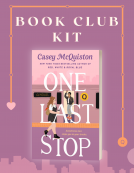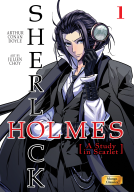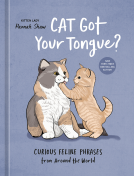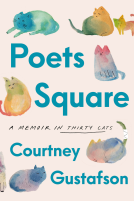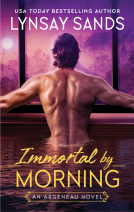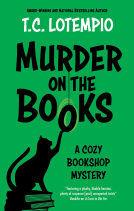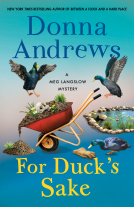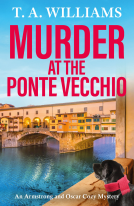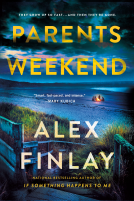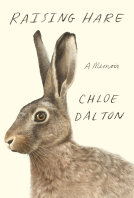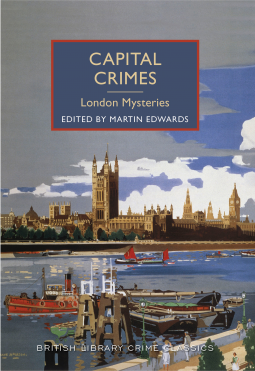
Capital Crimes: London Mysteries
A British Library Crime Classic
by Martin Edwards
This title was previously available on NetGalley and is now archived.
Send NetGalley books directly to your Kindle or Kindle app
1
To read on a Kindle or Kindle app, please add kindle@netgalley.com as an approved email address to receive files in your Amazon account. Click here for step-by-step instructions.
2
Also find your Kindle email address within your Amazon account, and enter it here.
Pub Date Jun 02 2015 | Archive Date Jun 02 2015
Description
Available Editions
| EDITION | Paperback |
| ISBN | 9781464203770 |
| PRICE | $12.95 (USD) |
Featured Reviews
 Judith L, Reviewer
Judith L, Reviewer
I was practically blown away by this compilation of crime short stories with setting in London. It will definitely help you appreciate this collection if you have a high regard for classical crime writing. Each story had it's own particular favorable aspect. Even the story I didn't like as much was only not as well liked because it was so well written that it made me uncomfortable to read it. These are seventeen stories from the 'old school' of crime writing. They are arranged more or less in chronological order of publication and the editor, Martin Edwards, precedes each story with biographical information about each author along with interesting remarks about the stories the author was known for. Here are the titles and authors of each story:
Arthur Conan Doyle, The Case of Lady Sannox (not a Holmes and Watson story)
John Oxenham, A Mystery of the Underground Richard Marsh, The Finchley Puzzle (Judith Lee, early female sleuth)
R. Austin Freeman, The Magic Casket (featuring Dr. Thorndyke and Jervis)
Ernest Bramah, The Holloway Flat Tragedy (featuring Max Carados a blind detective)
J. S. Fletcher, The Magician of Cannon Street (featuring Campenhaye and Killingley)
Edgar Wallace, The Stealer of Marble Robert Eustace and Edgar Jepson, The Tea Leaf Thomas Burke, The Hands of Mr. Ottermole H. C. Bailey, The Little House (featuring Reggie Fortune)
Hugh Walpole, The Silver Mask Henry Wade, Wind in the East (featuring Inspector John Poole)
Anthony Berkeley, The Avenging Chance (featuring Roger Sherringham)
E. M. Delafield, They Don't Wear Labels Margery Allingham, The Unseen Door (featuring Albert Campion)
Ethel Lina White, Cheese Anthony Gilbert, You Can't Hang Twice
All of the editorial pieces contain interesting items such as pseudonyms and fascinating details of what happened to some of the stories after they were published. It was very interesting to see how many of these stories went on to have films based on them. Readers who seek out a lot of the classic detective fiction will realize that the Anthony Berkeley story, The Avenging Chance, is well known as The Chocolate Poisoning Case as well and even was made into a full length novel by its author.
This collection was a delight for me to read. With the exception of the Berkeley story they were all new to me and having them all based in London proved to be a solid point of contact which held the collection together well. There is even one story that hangs together because of a good, old fashioned London pea soup fog.
I received an e-ARC of this novel through NetGalley.
Another excellent collection of classic and lesser-known detective stories edited by Martin Edwards, this time all connected by their London setting. The short introductions to each story are informative without giving too much away and there is the usual mix of well known and more obscure authors. The collection begins with a chilling tale by Conan Doyle, which does not feature Sherlock Holmes but is nevertheless grippingly told.
John Oxenham's 'A Mystery of the Underground" tells the story of a serial killer haunting the London Underground in a very atmospheric style, leading one to speculate how such a case would be dealt with today. The tale of a serial killer is also well suited to the original serial publication of the story.
The London setting add a pleasing sense of coherence to the different stories, which are nevertheless different enough to provide this collection with an entertaining variety, Highly recommended.
I’ve been reading this book for quite a while, but don’t let that length of time fool you. This is a collection of short story classic crime mysteries, all set in London. Every story found in this collection is different. Instead of sitting down and reading this book in it’s entirety, I’ve been enjoying it over the course of two months, picking it up and reading a short mystery here and there.
I liked how editor Mr. Edwards provides not only an introduction to the overall theme of the book, but also an introduction to each story. He gives information about the author, and their writing style or the story, adding incite to each adventure. This was particularly useful information for me, as I was unfamiliar with the majority of the writers in this collection.
The stories vary – some are suspenseful, others an armchair detective whodunit. There are amateur sleuths and Scotland Yard detectives. The publication years range from the late-19th to mid-20th centuries. Each story is unique. The piece that binds them all together is the city of London.
I really enjoyed this book. It is great when you want to read a short mystery, and the wide variety of stories ensure that there is something for everyone.
 Leah G, Reviewer
Leah G, Reviewer
The streets of London... 5 stars
From Sherlock Holmes to Lacey Flint, many of the detectives I have loved over the years have been based in London. And why not? One of the most cosmopolitan cities in the world with a history stretching back for over a millennium, it has always been a contrast of bright lights and dark alleyways, extreme wealth and desperate poverty, and every one of its ancient streets is drenched in the blood of the victims of its horrid past. Visitors love nothing more than to shiver in the London Dungeon, to thrill to the stories of ancient beheadings in the Tower, to make a pilgrimage to those famous rooms in Baker Street. What river has been the escape route for more criminals and the final resting place for more victims than the Thames? Who can think of Whitechapel without their thoughts turning to the eviscerated victims of Jack the Ripper?
So what better venue for a collection of classic crime stories? In this book, Martin Edwards has selected 17 stories from the Golden Age of crime writing, some from names we are still familiar with – Sir Arthur Conan Doyle, Margery Allingham, Edgar Wallace – but many from authors who have since faded into obscurity. He has arranged them into rough chronological order, allowing us to see the gradual transition from the heyday of the amateur detective to the beginnings of the police procedural with which we're more familiar today. The overall standard of the stories is variable, as in any collection, but I found most of them good or excellent, with only a couple that I felt really hadn't stood the test of time. But even these added something to the collection in showing how trends were just as strong in early crime-writing as they are now. For example, I was underwhelmed by Richard Marsh's The Finchley Puzzle, starring deaf, lip-reading amateur detective Judith Lee, but was intrigued to note that there seemed to be a fashion around that time for detectives with a physical quirk, since a couple of stories later we meet Ernest Bramah's blind detective Max Carradine – not unlike our current obsession with autistic detectives, but happily without the angst (or drunkenness).
The influence of Holmes and Watson is clear in some of the partnerships between brilliant detectives and admiring narrators, (though I suppose I should grudgingly give the credit to Poe's Dupin and his unnamed narrator really). R Austin Freeman's Dr Thorndyke in particular struck me as very Sherlockian, as did the aforementioned Max Carradine.
Many of the stories rely on intricate plots – 'locked room' mysteries, innovative murder methods, unbreakable alibis, etc. But others veer more strongly towards the psychological, using atmosphere to great effect to build suspense, and a couple of them could easily be classed as horror as much as crime. I've already highlighted a couple of the stories as part of my Tuesday 'Tec! slot – Edgar Wallace's The Stealer of Marble and John Oxenham's A Mystery of the Underground – but to give you a brief flavour of the collection, here are a few more that stood out for me...
The Case of Lady Sannox by Sir Arthur Conan Doyle – this revenge story is definitely more horror than detection, telling the tale of a husband avenging himself against the man who is having an affair with his wife. A truly horrifying ending! And a great way to kick off the collection.
The Tea Leaf – two men enter a room in a Turkish Bath, argue loudly, and only one leaves alive. But no murder weapon is found on the survivor or in the room. How was the murder done, and who is the killer? A fine example of a 'locked room' mystery with a unique method of killing.
The Little House by HC Bailey – amateur detective Reggie Fortune is asked to look into the case of a missing kitten, but this soon becomes an extremely chilling look at a case of child cruelty. The writing style is a bit staccato but the story is powerful with a strong sense of anger and justice.
The Silver Mask by Hugh Walpole – the story of the collection for me, and I will definitely be looking for more of Walpole's work. This tells of a middle-aged lady whose loneliness and maternal feelings are played on by an unscrupulous young man. The way Walpole describes the woman's character is very true and touching, and I found the portrayal of the unintended carelessness of her friends and family quite moving. This is another with an atmosphere of terror which mounts all the way through to an ending that is full of dread. Brilliant stuff!
They Don't Wear Labels by EM Delafield – an intriguing story told from the perspective of the landlady of a married couple living in her lodging house. The woman is suffering from 'nerves' and on one evening tells the landlady her husband is trying to murder her. But the husband is so nice to everyone, and seems so kind to his impossible wife – he couldn't possibly be a murderer...could he? Another psychological study this, of how one can never tell by appearances.
All round, an excellent collection that I highly recommend to all crime aficionados, and I'm looking forward to reading Edward's selection in the companion volume, Resorting to Murder.
